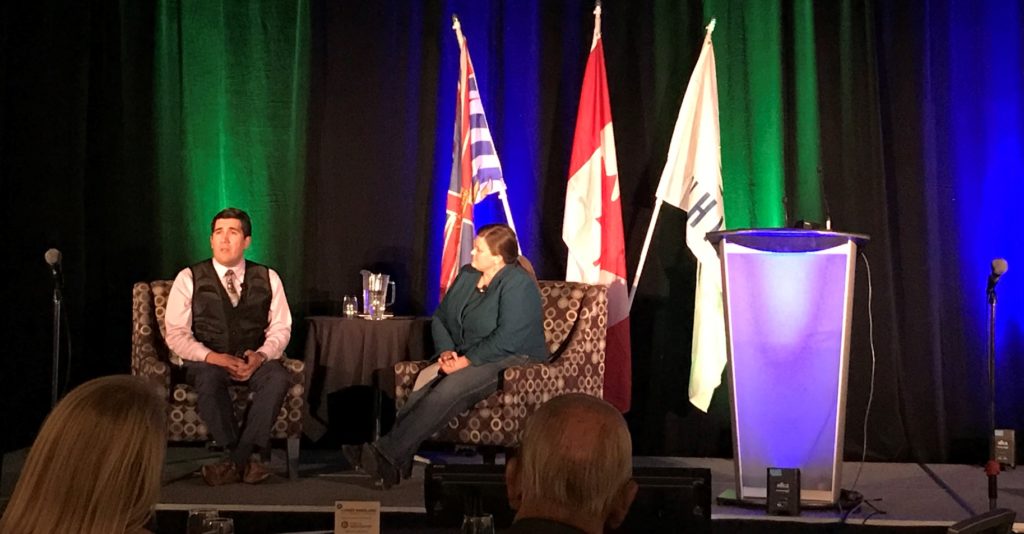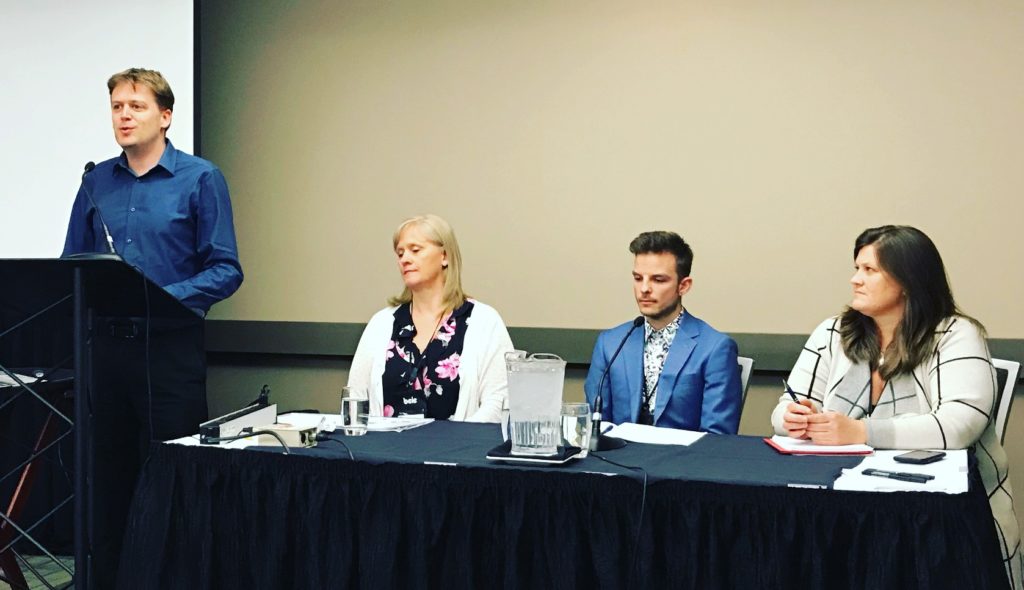I’m out in Halifax at the annual meeting of the Federation of Canadian Municipalities, which is a nation-wide conference for local government types. However, I don’t want to report on this yet, because I still haven’t reported on my trip to Whistler last month for the LMLGA. Sorry, things have been busy!
The Lower Mainland Local Government Association is a networking and advocacy group that serves the local governments of the southwest corner of the mainland of BC, which I talk about a little more in my report on the 2017 meeting here.
The 2018 conference was at Whistler in the first week of May, and it was a full couple of days. Here is a quick run-down of what kept me busy over that time.
Pre-conference Sessions
There were two plenary workshops on Wednesday afternoon (I am on the LMLGA Executive, so I had to go up early for Wednesday morning executive meetings). One was on challenges that cities have in attracting and retaining family doctors, the second on the latest updates on cannabis legalization. I did not have a lot to say about the first session, as there was a lot of details about the problem (from how we teach Doctors to how we pay them and how we attract them from other jurisdictions – all firmly in the Provincial realm) and the solutions local governments could apply were a strange mix of making your city more livable and selling the benefits of your community to young professionals and their families.
The second session was more compelling, as there was a lot of new information about how other local governments are approaching legalization. There is a strict division between what the federal government and provincial government will be regulation, and there is a fairly well defined role for local government. As always, our role is land use (where will these businesses be able to set up?), business licensing (how will a local business operate –hours, signage, staffing, etc.), and nuisance management (where will we enforce smoking, growing, etc.). In New West, we expect to have a report back from Staff early in the summer to set up our local rules, though it seems obvious that the roll-out of federal regulations will be delayed from the July deadline set up by thr federal government.
The opening day ended with a Keynote by Chris Syeta’xtn Lewis from the Squamish Nation, who gave a informative and poignant summary of the history of his people, and the context of where the amalgamated Squamish nations exist today, and what they see for the future of their region. A follow-up discussion with Mayor Patricia Heintztman of Squamish talked about the opportunities all Cities have for not just starting reconciliation, but finding a respectful space to have conversations about our shared future. It was an inspiring evening.

Day 1
Our Morning Plenary was a talk by author James Hoggan, whose discussed his book “I’m Right and You’re and Idiot”. It was a long dissertation on the current problem of public discourse (including there are too many people intentionally disrupting it for personal or political gain), and some techniques to address this (“speak the truth, but never to punish”). Any summary I give here will give short shift to his great multi-faceted talk that covered what Hoggan calls the “social pathology” of our natural predisposition to form teams, the opportunity to be found in embracing cognitive dissonance, and how all of us on every side of every issue think we are David and the other is Goliath.
I then ran a Transportation Connectivity session, which was in two parts. First, Don Lidstone gave a talk on the autonomous vehicle and vehicle-sharing future from the perspective of local government legal issues. Don is, among many I have heard on this topic, at the techno-optimist side of things, anticipating that our entire vehicle landscape will shift dramatically in the next decade to something we do not recognize. He switches quickly to pessimist, however, when he talks about how completely unprepared the province and local governments are. Nothing in our Motor Vehicle Act addresses driverless vehicles. The liability that falls on a Local Government if our infrastructure is not read correctly by an autonomous vehicle (say, if someone vandalizes a stop sign or road lines are buffed off) is uncertain and untested. There is also the not-minor problem that every local government has its own Street / Traffic / Parking Bylaws, and there is no system to an autonomous car to know this, or even any understanding of who is responsible for teaching a car that drives into New Westminster from, say, California, what a flashing yellow light means here or what the local parking restrictions are.

The second part was a panel discussion moderated by Mayor Cote, where a Planner from the City of Abbotsford, the Mayor of Squamish and a staffer from BC Transit discussed the opportunities and challenges of connecting the entire Lower Mainland (Hope to Delta to Pemberton) with Public Transit. Abbotsford and Squamish are both growing quickly, and both are becoming denser, more –transit oriented communities well served by Transit, but barriers exist between the area served by TransLink and those served by BC Transit. This is a bigger issue for Squamish, where up to 4,000 people a day commute to Vancouver, but Abbotsford is all about connecting local communities as opposed ot getting people to the “core”, as job growth is being pushed out to Abbotsford in a major way. So clearly, needs differ around the region, but the need for coordination does not.
We then had a unique program element: An actual honest-to-goodness debate. Seth Klein and Josh Gordon each had teams debating the question: “Does the Speculation Tax go far enough?”, which was fun to watch and quite informing about the strength of the tax as public policy (which resulted in the audience shifting somewhat from slightly in favour of the tax to slightly more in favour of the tax).

The rest of the Day 1 was spent doing AGM-type activities, including Bylaw updates, passing a budget, and electing officers for the upcoming year. You may now congratulate your new Lower Mainland LGA Second Vice President. Jason Lum of Chilliwack has been an excellent President for the last year, and Jack Crompton from Whistler will no doubt fill his shoes well, as he has already been a real driving force behind some of the new initiatives LMLGA has brought into assure it serves its members. We also had resolutions, which I will talk about in Part 2 of this report, which will be arriving soon…